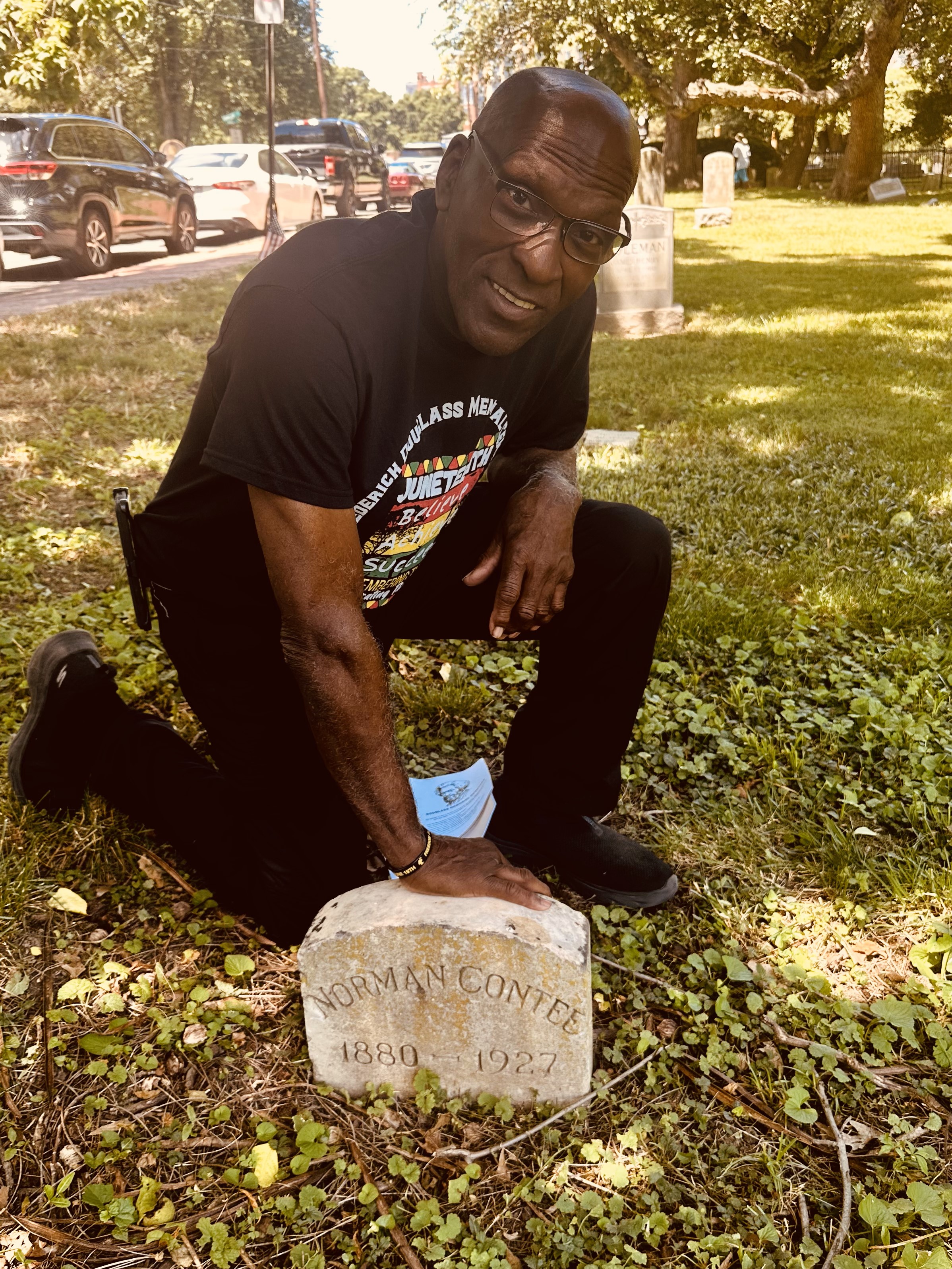Guests and descendants of those buried in Douglass Memorial Cemetery gather for a photo at the Douglass Cemetery Juneteenth Remembrance ceremony June 15.
Generations of descendants of those buried at Douglass Memorial Cemetery gathered for a Juneteenth celebration and remembrance ceremony June 15 at the historic site on Wilkes Street.
Named in memory of abolitionist Frederick Douglass, the cemetery was established in 1895 as a segregated, nondenominational African American cemetery. Douglass died that same year.
“This is a significant historic site,” said city archeologist Eleanor Breen. “Historic cemeteries are a creation and a reflection of the individuals, families and communities that once comprised Alexandria.”
Douglass Memorial Cemetery is the final resting place for over 2,200 African Americans, making it the largest African American cemetery in Alexandria.
“I did not even know my grandfather was buried here,” said Myron Contee, a minister at St. John's Church. “The older generations didn’t really tell history. I got to meet my grandmother but it wasn’t until the city did the research that I learned where my grandfather’s body was buried.”
Elizabeth Lewis-Clark, a history professor at Howard University, was a guest speaker at the event.
 Myron Contee at his grandfather’s gravesite June 15 at Douglass Memorial Cemetery.
Myron Contee at his grandfather’s gravesite June 15 at Douglass Memorial Cemetery.
“Frederick Douglass was a towering figure in US history,” Lewis-Clark said. “He was born in enslavement but more importantly he was a gifted writer and speaker. Like those who are buried right here, he knew from the start what it was like to move up from the bottom. He knew terror. But he knew perseverance and never stopped working.”
Michael Johnson, who has been instrumental in the preservation of the cemetery, was in attendance with his five grandsons.
“My great grandfather Warner Johnson was the first of 33 kids that Peyton Johnson had,” Johnson said, noting that he was married three times. “It’s important for my family to learn the history here.
Lewis-Clarke recalled one of Douglass’ last speeches, that took place in Alexandria.
“It was in September of 1894 that Douglass was speaking right here in Alexandria,” Lewis-Clark said. “He reminded everyone that day that although it was a place that once fought for enslavement, Alexandria was a city that he looked upon from his home with great love and respect. This cemetery is named after a leader who in his speeches encouraged people to celebrate freedom all year long.”
